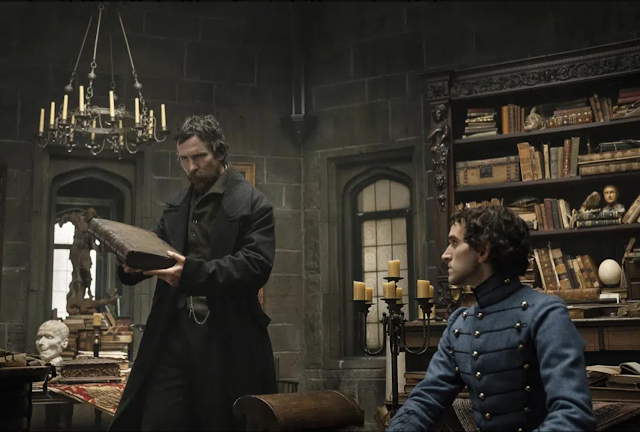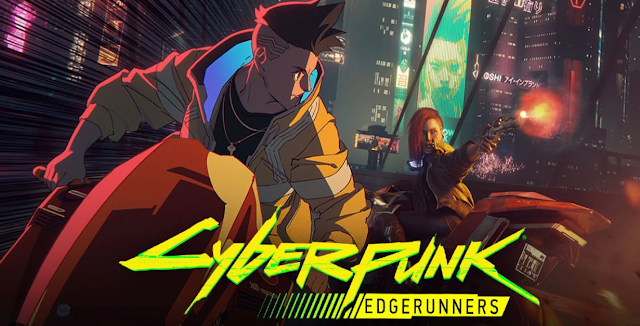There is a bizarre and angry culture war going on in the Dungeons & Dragons community. Those who prefer old school Dungeons & Dragons are profoundly conservative and libertarian (it's weird that politics can be so easily seen but there it is). Some are as right wing as you can get, making the likes of Sean Hannity look like Obama by comparison. With a population base that plays D&D equal to about 55 million, I think of these folks as a hundred thousand or maybe a couple hundred thousand of that total. So, I think they are a small group. But they are the storm the capital on January 6th types, and they are very vocal, abusive, and the "don't tread on me" crowd.
The things that these conservatives love about D&D is the exhilaration of an open world. They prefer inherent uncontrolled chaos, spontaneity, and vast opportunity in a sandbox-styled campaign. They think this is exciting because anything could happen. Your character could get killed in the first encounter or eventually wind up as a king. They want things to be difficult for the characters, but the people running these games who stress that these difficult conditions are the proper way to game...are themselves extremely lazy storytellers.
Many of them call an hour of prep time as sufficient. They don't invest in props or models. They don't spend a lot of time reading modules or other source materials so that they can make their worlds more interesting. They basically just "mail it in." When running games, they don't give out magic items and are extremely vigilant regarding any kind of power creep because they want to be able to just pick up a game and prep in five minutes. They shut down ideas, actively work against players, and ignore rules to substitute their own that almost always castrates a character class even further on what it can do.
While running a game, the monsters they use to challenge players will be difficult if not impossible to defeat, which (in their minds) makes the experience more realistic because the stakes will be your character's life. In their worlds men have toxic masculinity traits galore, women are love interests, and there are no queer characters and anthromorphized animals (no furries!). It is a strange thing to watch when these people meltdown online because they can't find players. It's like watching the business owners complain that "No one wants to work," when these businesses are offering shitty jobs with low pay and no benefits. They should say, "No one wants to be exploited anymore. Damn, I miss the past when I could exploit people whenever I wanted." But yeah...times have changed. People have wised up. And we are all paying the price for that with inflation and scarcity. I suppose what I'm saying is that it isn't easy to make a world where everyone is respected and cared for, but its worth it. It's super easy to make a world where a few get all the goods and everyone else exists in misery. A lot of humans like the easy way out.
By contrast, those who play newer RPG's tend to be liberals. They want inclusion, tons of choices, things decided ahead of time, equitable, balanced, and fair encounters. And they want sustainable progression and a more predictable world to play in. The DM's for these games tend to put in a lot of work, carefully building worlds that make sense, and accounting for power creep by adjusting and tweaking encounters so that they challenge but do not crush players. It's kind of a "Wizard of Oz" trick in that there are smoke and mirrors in play. The DM knows that the characters are supposed to win. Their job is just to make it so that it isn't obvious that they are winning. But yeah...the deck is stacked in the player's favor, and everyone then has a good time. These people, who number in the millions and who are fans of the game, get shouted down a lot by the angry and very vocal conservative players who seem to be getting more filled with rage at what the parent company, Wizards of the Coast, does every day.
Recently, WOTC announced a big change in the way they deal with third party content using the "Open Game License" that has been pretty much taken for granted for more than twenty years. There are a lot of players who escaped the drudgery of the brutal capitalism they adore to put themselves in a position where they charge for content. But they have no empathy for those who still have to work in drudgery rather than doing something that they love. These "content creators" say to those others, "Hey! Adapt or die! I adapted! If you want something you gotta stop being a snowflake and just go out and put in the hard work like I did." But the thing is...they didn't really do hard work.
What they did was founded small corporations that churn out endless amounts of third party content. Many of you reading this blog are writers, and writers these days (especially self-publishing ones) number in the millions. Creativity is cheap y'all. It is not a precious resource. Now, as a consumer of some of this third party content, what I do choose to buy is well thought out and has good production values. But all of it is still just a money grab from the Dungeons & Dragons nerd community. Kickstarters have exploded to the point that it is getting harder and harder for new people to make any money, because the third party creators have flooded the landscape trying to make a buck.
Some of the more successful ones generate hundreds of thousands (or millions) in profits. All of these bootstrapping, entrepreneurial types are now on notice as WOTC is going to demand tribute from anything over $75,000 a year, and there are draconian rules that will allow them to claim as their own any content you create that uses their parent game system. It's all meant to secure their intellectual property, but the "content creators" and by and large their libertarian supporters who yell "don't tread on me" are (in a word) furious. And it has gotten so bad that I've had to dump several Facebook groups that (as far as I knew) existed to connect people and allow them to find players for local tabletop games. These have now all been inundated by YouTube posts saying WOTC is a money-grubbing evil monster, that D&D is being destroyed, and going so far as to say that everyone who plays is under threat. I've been shaking my head, saying, "This is the stupidest thing I've ever seen."
For years, these people have (by and large) been jealous and bitter of WOTC's success in the explosion of popularity in Dungeons & Dragons. They are stern gatekeepers as well. They wanted people to play their old, ruthless, uninteresting games with no diversity and celebrating the white male, and they called anyone who didn't want to play like that a "snowflake." Many (for lack of finding anyone who wanted to play their increasingly out of touch games) switched to the fifth edition only to proceed to lambast, strike out rules, and criticize the ruleset completely in an attempt at the old "bait and switch." The thing is, new players don't like to have their free time being abused by another human being, which is how a lot of old school D&D tends to be.
They also promote hysteria in the same manner as conservative talk radio promotes hysteria by floating conspiracy theories and by making mountains out of molehills. As a longtime player, I've never been more aware than I am now at the stark differences between how conservatives and liberals define what "fun" is and how they prioritize what is important and what isn't important. I don't actually know where it will all end up. What I do know is that the Open Game License in any iteration is a benign thing to people who just enjoy playing the game, and that the outsized cries of anguish are from people who are making money at D&D content, which is just plain weird. I get that community is important. But trying to monetize a hobby is some sketchy crap to pull, and I think that maybe if you are that kind of person, you should try working like the rest of us in drudgery and the capitalist system that you voted for and created. It's hard for me to shed any tears for any corporation or group that thinks that they had a right to build upon Wizards of the Coast's intellectual property without paying them their pound of flesh.
So anyway, that's what's been going on in the Dungeons & Dragons community. I'm interested to see how it all ends up. I enjoy the game a lot and I always have. I think the game will be better if many of these "content creators" just move along and develop their own systems. If they choose to do this, then good for them. I'm just getting tired of the social media posts that are everywhere in the groups I'm in declaring, "I'm going my own way because I've been stabbed in the back for the last time by Wizards of the Coast." I'm like, "Please do and don't let the door hit you on the ass on the way out." However, if I like what they make, I just might buy a copy and start playing their game. I think that will be healthier for everyone, and maybe my Facebook groups for "finding a group" can return to normal instead of constant demands to sign "this petition or else!"
If only we lived in a world where people could just admit freely that there are only so many good ideas, and that if you are a corporation that comes up with the "good idea" that it would be okay to eliminate your obscene profit in said idea (we'd all have to settle on some threshold that would make you rich but not obscenely rich as a reward) and let everyone have a piece of that pie forever after. So yeah...socialism. Expect anything else from this democrat? But I know we don't live in that world, because people are still gaslighting themselves into thinking that there are infinite good ideas and that if you can't come up with one, then you are stupid and deserving of your failure. This is categorically untrue, but whatever. All of these "content creators" who go off and design their own game are about to find that out, as many of their companies fail to generate the profits necessary to sustain their business.
On Wednesday of next week, I want to talk about Netflix's Locke & Key. See you then.








